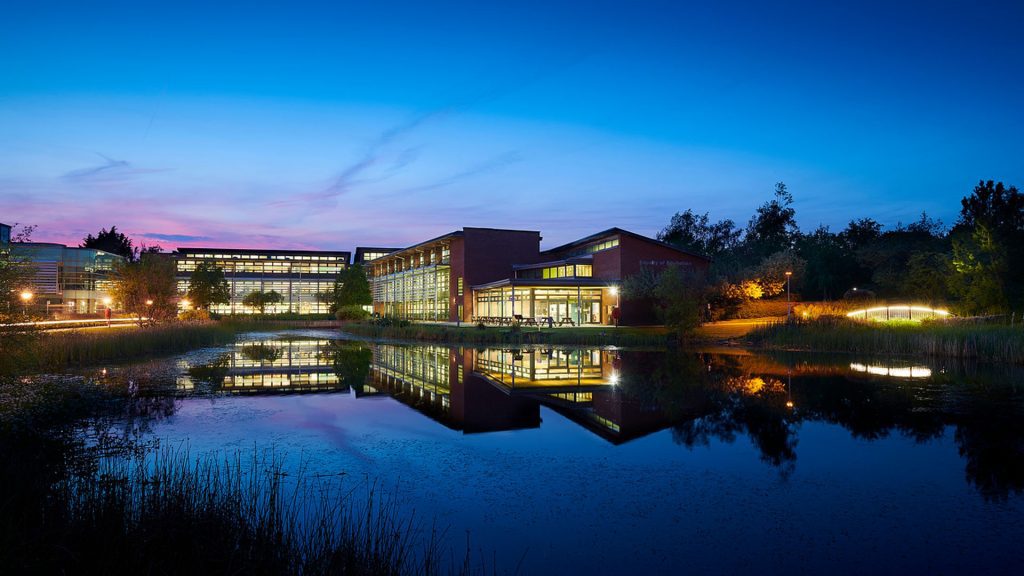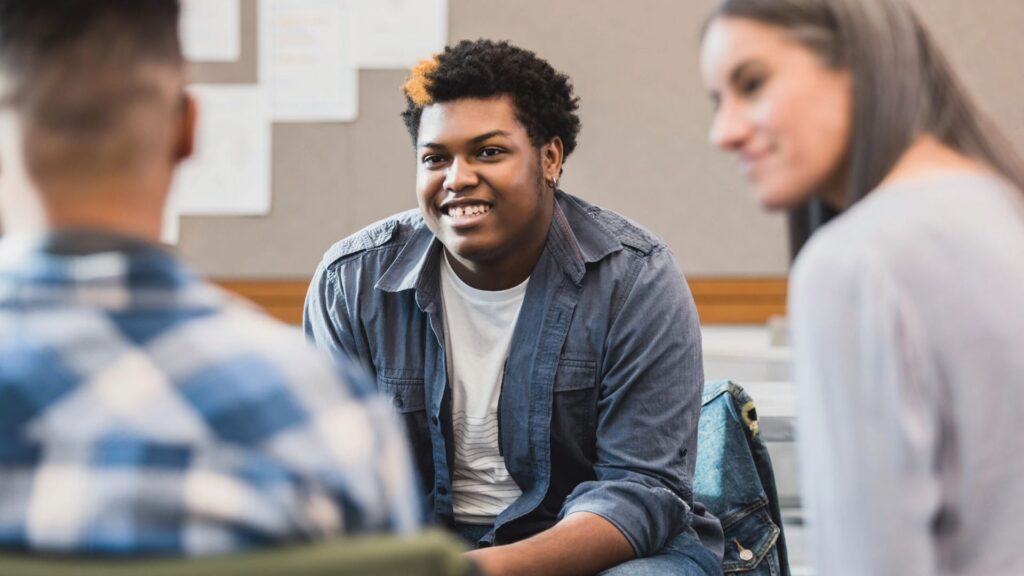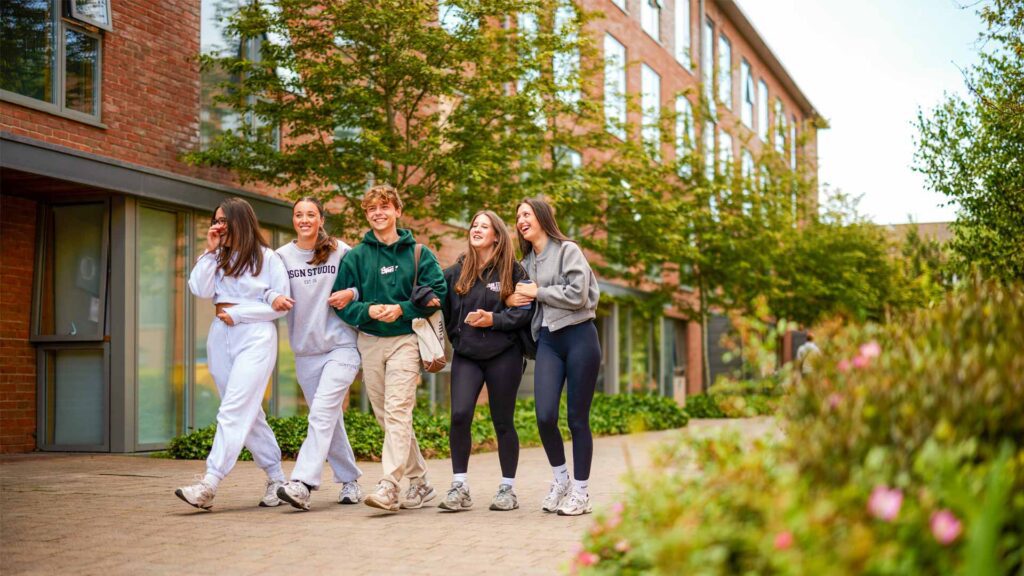MA Education (Children and Young People’s Mental Health) course preparation
To help you feel prepared for your MA Education (Children and Young People’s Mental Health) studies, we’ve put together a list of key department contacts and how to connect with them, where you can expect to learn and other tips on how to prepare for your transition to postgraduate study. You can also find even more useful information and a welcome video from the department here too. Read on to find out more.

Where your department is based:
As an education student, you’ll have use of the facilities across our stunning campus, but your department is based in our Piazza building.
Facilities in our Piazza building include:
- open plan study and meeting spaces
- faculty staff offices
- lecture theatre
- a number of seminar rooms
How to prepare for your transition to postgraduate study
At Edge Hill, we host a range specialist UniSkills workshops for all of our applicants to access. You might find our transitioning to postgraduate study toolkit particularly useful. This will help you to recognise and understand what the expectations are in relation to academic research, reading and writing skills at this level. We will also introduce you to the many ways you can access support during your time at Edge Hill.
We know that you’re aware that you’ll be putting in hard work to study for your course when you arrive. But it’s not just academic skills that you’ll be using once you’re here. And there are a few skills that you might want to refresh now so that you’re a pro when it comes to the start of your studies in September.
- Time management – we know that as a postgraduate student, you may have other commitments outside of your studies. It’s important to consider how other responsibilities, such as work and family life, may impact upon your engagement with your academic pursuits. Managing your time appropriately will become important to ensure success, so your Personal Academic Tutor will be there to support you with the transition to postgraduate study and advise you about the support available to help you adjust to academic life.
- Returning to Learning – whether you’ve studied at Edge Hill before, recently graduated or had a long break out of education, our UniSkills online sessions are an opportunity to grapple with the challenges of studying in higher education. Each session is facilitated by both an Academic Skills Advisor and a Student Advisor, and offer you the opportunity to meet other students who are also returning to study to share any concerns, learn how others in this situation have adapted to Higher Education, suggest tips for effective learning and develop your academic resilience.
- Independent work – it’s important for you to be able to work independently at postgraduate level study, as you’re expected to take on more responsibility for your own learning in the development of your expertise. Working independently doesn’t mean you can’t collaborate with others. We encourage you to work together with your peers and your tutors and share ideas as your thinking develops at this higher level.
To remind yourself of your modules, please visit your course page:

Get ready for your first module:
Your first module will be Theorising Education. In this module, we will grapple with a range of educational theories and consider their relationship with practice. To get you in the mindset, we have suggested the following blogs to read and get you thinking:
- Managing complex pupil needs: A key factor influencing teacher resilience
- Tracing the footsteps of anti-racism: From my journey to our collective responsibility
- Neutral not negative: Language use within academia
- Integrating education initiatives within Ghana’s national nutrition framework
- No room for battle of the sexes: Why boys AND girls matter
- Sea state: rough, occasionally very rough, rarely smooth!
Useful websites:
The below websites are great places to keep up to date with the latest educational research in a digestible format, written by the people who have conducted the research themselves.
Materials you may need:
It’s a good idea to wait until you start your course to buy any books or specific equipment as your tutor will be able to provide more details about what is essential. And our library may be able to provide you with reading materials. But there are a few things you may want to consider.
- Academic diary – a staple to help you with your time management as well as upcoming tasks in both your academic and personal life.
- Notepads and pens – some people prefer to do this digitally rather than on paper, whichever you prefer, make sure you have the resources to complete any notes you’d like to take. If you like to write on a physical notepad, consider an A5 size so that it’s easier to carry around.
And of course, anything else that you like to use for your academic studies, like highlighters, flashcards and folders.

Joining the Edge Hill community
We understand that sometimes it can feel a bit daunting when you join somewhere new for the first time. We’re here to reassure you that you won’t be alone, and we’re looking forward to welcoming you to the Edge Hill community. Our students come from a wide range of backgrounds, and studying on the Masters gives you the opportunity to meet like-minded individuals who share a passion for education and social justice.
Once you arrive, you’ll be able to find out what activities and clubs/societies are available for you to get involved with. These are the perfect way to meet like-minded individuals who share the same passions as you. Make sure to use our Student Life Portal to keep up to date with all the events happening at Edge Hill.
Your department contacts
For further information, queries, or a chat please contact Dr Christina Donovan, Programme Leader for the MA Education (All Pathways).
You can also find out more about the department and meet the team here.